Tis the season to be gearing up for the RT Convention! This is just one of the fun reader parties I’m participating in.
I’m over at Word Whores talking about 3 Hours, 3 Days, or 300 Years: How Do You Choose & Use The Passage of Time?
RITA ® Award-Winning Author of Fantasy Romance
Tis the season to be gearing up for the RT Convention! This is just one of the fun reader parties I’m participating in.
I’m over at Word Whores talking about 3 Hours, 3 Days, or 300 Years: How Do You Choose & Use The Passage of Time?
 A piece of writing advice I often see tossed out there is that you must love your own characters, if you want your readers to love them. A parallel bit of advice is that a writer must be interested in the scene she writes in order to create interest in the reader. Every time I see this sort of thing, I pause and ask myself if I think that’s true.
A piece of writing advice I often see tossed out there is that you must love your own characters, if you want your readers to love them. A parallel bit of advice is that a writer must be interested in the scene she writes in order to create interest in the reader. Every time I see this sort of thing, I pause and ask myself if I think that’s true.
I’ve decided that I really don’t.
I think this is a kind of false logic that springs from observations on the relationship between art, artist and viewer that I talked about a few days ago while discussing how to write vivid characters. Basically it’s the idea that our conscious understanding of what we’re trying to show as artists subconsciously affects the viewer (or reader, play-watcher, etc.). I observed long ago in directing a play that where I was muddy in how I understood the story, so was the audience. I do think this is a real phenomenon.
What’s not so real is the conflation that our emotional reaction to the work – love, fascination, what-have-you – will also manifest in the final product.
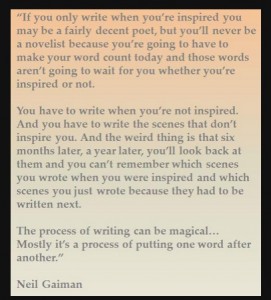 I’m not sure why it doesn’t work this way, but from my own experience, and from what other writers have said, it simply doesn’t. Neil Gaiman has written about this before and I can’t find the direct quote right now (updating to say I ran across it – posted in pic), but particularly for novel writing, there are long slogs where the writer might be bored out of his mind. Neil suggests that a writer who wants to feel constantly engaged by her own work might make a good poet, because poems are short enough. A novelist, however, he points out, has to have more endurance. It takes a long time to write a novel. I’ve calculated that I can write steadily at an average of 1,700 words per day, including days off and intervening edit rounds on other works. This means it takes me approximately 70 days to write a 120K word novel. That’s pretty fast, I’m reliably informed. It also works out to about 3 months writing the story.
I’m not sure why it doesn’t work this way, but from my own experience, and from what other writers have said, it simply doesn’t. Neil Gaiman has written about this before and I can’t find the direct quote right now (updating to say I ran across it – posted in pic), but particularly for novel writing, there are long slogs where the writer might be bored out of his mind. Neil suggests that a writer who wants to feel constantly engaged by her own work might make a good poet, because poems are short enough. A novelist, however, he points out, has to have more endurance. It takes a long time to write a novel. I’ve calculated that I can write steadily at an average of 1,700 words per day, including days off and intervening edit rounds on other works. This means it takes me approximately 70 days to write a 120K word novel. That’s pretty fast, I’m reliably informed. It also works out to about 3 months writing the story.
Am I always entranced by every scene I write? No.
Will I experience every emotion I write? Not at all.
Do I always love my characters? Not by a long shot.
Now, some days I do! Sure, sometimes I cry while writing, or feel in love with my characters. Other times it’s like laying down bricks on an endless road. This is why what Neil said resonates with me. He noted this same thing, that there can be long periods where the writing feels dreadfully dull and not at all engaging, and – most salient – that when he goes back and reads the final work, he can’t discern which parts he wrote while loving it and which while slogging through.
I have experienced exactly this thing.
So, no – you don’t have to love your own characters. Just as, I might be going out on a limb here, we don’t always feel gushing love for our spouses every minute of every day. But what we do have is commitment to them. In a long-term relationship, we stay the course and feed the parts we want to grow. Writing a novel requires the same commitment. Don’t expect to love every moment, every nuance. Stay the course, feed the work and trust in yourself as an artist.
Do the work and the love will follow
 I’m over at Word Whores giving my tips for avoiding the dreaded pitfalls of Character Cloning.
I’m over at Word Whores giving my tips for avoiding the dreaded pitfalls of Character Cloning.
 I’m writing from the Coastal Magic Convention, right on lovely Daytona Beach. I’ve been doing sunrise beach walks each morning with fab book blogger Jen from That’s What I’m Talking About. Wonderful way to start the conference day!
I’m writing from the Coastal Magic Convention, right on lovely Daytona Beach. I’ve been doing sunrise beach walks each morning with fab book blogger Jen from That’s What I’m Talking About. Wonderful way to start the conference day!
I’m over at Word Whores today, talking about how the development of positive traits builds better villains.
 I’m over at Word Whores, giving my tricks for putting more emotion on the page – something that was not intuitively easy for me.
I’m over at Word Whores, giving my tricks for putting more emotion on the page – something that was not intuitively easy for me.

 I haven’t done many sunset pictures lately. Wouldn’t want you all to pine away for lack of them!
I haven’t done many sunset pictures lately. Wouldn’t want you all to pine away for lack of them!
And you can focus on the pretty clouds and take deep, calming breaths while I explain why everyone is saying Paranormal Romance and Urban Fantasy are dead genres.
I’ve participated in this very conversation several times over the last few weeks – in meetings, panels and online – so I thought I might as well write out my take on it, as something to point to.
But yes, this is the industry message we’ve been hearing and was probably one of the key takeaway messages from RWA 2014. Agents and Editors are just not buying new Paranormal and Urban Fantasy stories.
I’m sorry. Look at the pretty clouds. Take a deep breath.
But, but, but… Jeffe! I hear you all saying. But your Twelve Kingdoms books are doing really great and you said the other day that if presales on The Tears of the Rose are good enough you’ll get to do three more!
But I see new paranormal and urban fantasy books coming out all the time!
But I love to read those genres and know *tons* of other people do too, how can it be dead??
What do they even mean when they say a genre is dead?
Okay, so here are some simple answers for you.
“Dead Genre” – WTF??
You’re right – it’s a misnomer. Even the agent who declares on a panel that PNR is dead will agree ten minutes later that genres don’t really die. She means that it’s on a downcycle. When industry people say this, they mean that agents can’t sell that genre to a big publishing house and editors can’t justify acquiring it. Will that change eventually? Of course. Will certain books circumvent that rule? Of course. Will yours? The odds are not in your favor.
If editors say they won’t acquire, then why did [insert famous PNR/UF author name here] get another big deal?
Because they *already have an audience.* It’s not a gamble to buy more books from an established author. It is a gamble to give a book contract to a new or midlist author. Having that uncertainty on top of a downcycle genre stacks the deck against the decision to go for it. This is why the big authors get big deals, to keep doing what they’ve been doing. This is why umpteen books still come out on the shelves. This is also why digital and smaller publishers are more likely to give a book in a downcycle genre more of a chance, because they have less investment to gamble.
But the READERS!
Okay, there are a few things to consider here. One is that these people see the sales and you don’t. Just because the big authors (see above) are selling lots of books, does not mean that all books in the genre are doing likewise. I can vouch that a number of authors I know writing in these genres are not selling that phenomenally. There are a LOT of books out there – the market is glutted, which is what causes a downcycle. It’s hard for a new author to break in, be different, catch reader attention. One thing to consider is, between you and your PNR/UF loving friends, how many of the books that you’ve bought lately were from totally new authors? Not new-to-you, but debuts? If can list some, think about why those debut authors caught your attention.
So… does this mean you’re screwed?
No.
EMPHATICALLY NO.
First of all, remember than genre is something of an artificial construct. If you can find a way to spin your story or the description to make it clear that it’s not yet another example of this dead genre, do that. Some of you cleverly pointed at my books and that I, as NOT a big author, am doing okay getting them out there. That’s because they’re Fantasy. If you were paying attention last week, female authors did great in the Hugo Awards. Keep in mind that the SciFi/Fantasy (SFF) publishers are not the same as the PNR publishers. Other romance subgenres may be hotter now, but there’s hunger for female voices and stories in SFF.
And besides, the wheel goes round, right?
I’m giving you perspective and advice on the market right now. That’s totally different than the advice I’d give you as a writer, which is to write what you love. As an artist, as a storyteller, you have to follow your heart. Now, if your heart is polyamorous and can be just as happy with you writing an idea in an upcycle genre? Do that. But don’t chase the market. Put the book in a drawer and wait for a better season. I have one that’s a great book, could be an amazing series – and the market is all wrong right now.
Write something else.
That’s what writers do.
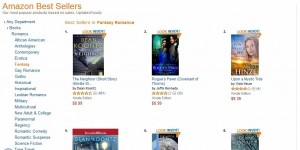 A little while back I mentioned that monsoon season was starting in New Mexico, bringing all that metaphorical and literal goodness to my life. Such a rain of blessings, indeed! Carina Press put Rogue’s Pawn on sale for 99 cents (through July 19, if you haven’t snapped up that deal yet) and it was featured on Book Bub. Amazing results in that it hit #2 in Fantasy Romance. Right behind Dean Koontz, which had us all scratching our heads. Turns out he’s doing more romance and less horror these days.
A little while back I mentioned that monsoon season was starting in New Mexico, bringing all that metaphorical and literal goodness to my life. Such a rain of blessings, indeed! Carina Press put Rogue’s Pawn on sale for 99 cents (through July 19, if you haven’t snapped up that deal yet) and it was featured on Book Bub. Amazing results in that it hit #2 in Fantasy Romance. Right behind Dean Koontz, which had us all scratching our heads. Turns out he’s doing more romance and less horror these days.
Still – me and ol’Dean, yanno? Such a major rush to see this book ranked so high.
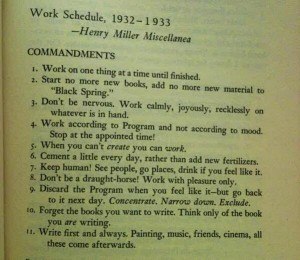 I saw this go by on Twitter this week – Henry Miller’s set of “commandments” for himself on getting his work done. I’d never seen it before and thought it’s so very smart.
I saw this go by on Twitter this week – Henry Miller’s set of “commandments” for himself on getting his work done. I’d never seen it before and thought it’s so very smart.
One aspect I like best here is that he made this list for himself. Who knows, in today’s era he’d maybe have put it up on his blog. But then, he’s clearly addressing himself. I particularly love that he forbids himself from adding more material to “Black Spring.” There are a lot of great nuggets here – the acknowledgment that “creating” doesn’t always feel like it can happen every day, but work can. To work with pleasure and not make it into a chore. The one that really struck me, however – maybe because I’m not sure I’ve seen another writer encounter this – is #4: Stop at the appointed time.
I’ve discovered this is really key for me. We all have the bad days, the tooth-pulling ones. Where every word feels hard-fought. On the worst ones, I don’t get my wordcount and that bothers me. I’ve discovered, though, that sometimes that happens. Sometimes the story needs to cook or I just don’t have the mojo that day. If I’ve put in the diligent effort, I try to cut myself the slack and let it go. Usually the next day is much better. Sometimes I’ll have several days in a row like this and I just have to chip away at it.
The reverse is the true glory. The days that every writer lives for – when the words pour out in a rush, as if from another place, and I only have to type as fast as I can to get it all down. On those days, it can be VERY tempting to keep going. Especially since I usually have time, because I got the wordcount fast and easily. Often I go over on those days by 100 or 200 words.
And I find myself thinking, why not go for an extra 1K?
I used to do this, but I don’t let myself anymore. Which is why I’m fascinated that Henry Miller apparently set this rule for himself, also.
It’s important for a working writer to learn to write through mood. In essence, you can’t let the bad days get you down. I think it’s equally important not to let the good days carry you away. Inevitably, if I milk that flow and push for extra words, push past the appointed time, I incur some damage.
I’m not sure why this is, it just is.
(Okay – I suspect it has something to do with breaking an agreement with my subconscious self, but that gets into complicated territory fast.)
What kind of damage? Usually I’ll trigger a crash and then I’ll get a run of days of shortfall. So much so that, in the overall scheme, I’ll end up behind my timeline instead of ahead of it. Totally not worth it. It would be interesting to know if Henry encountered the same thing.
So this is my rule for myself now, too. I stop at the appointed time or at my wordcount goal and call it done. Has anyone else encountered this? Either in an artistic pursuit or some other arena?
Hope you all have a fabulous weekend!
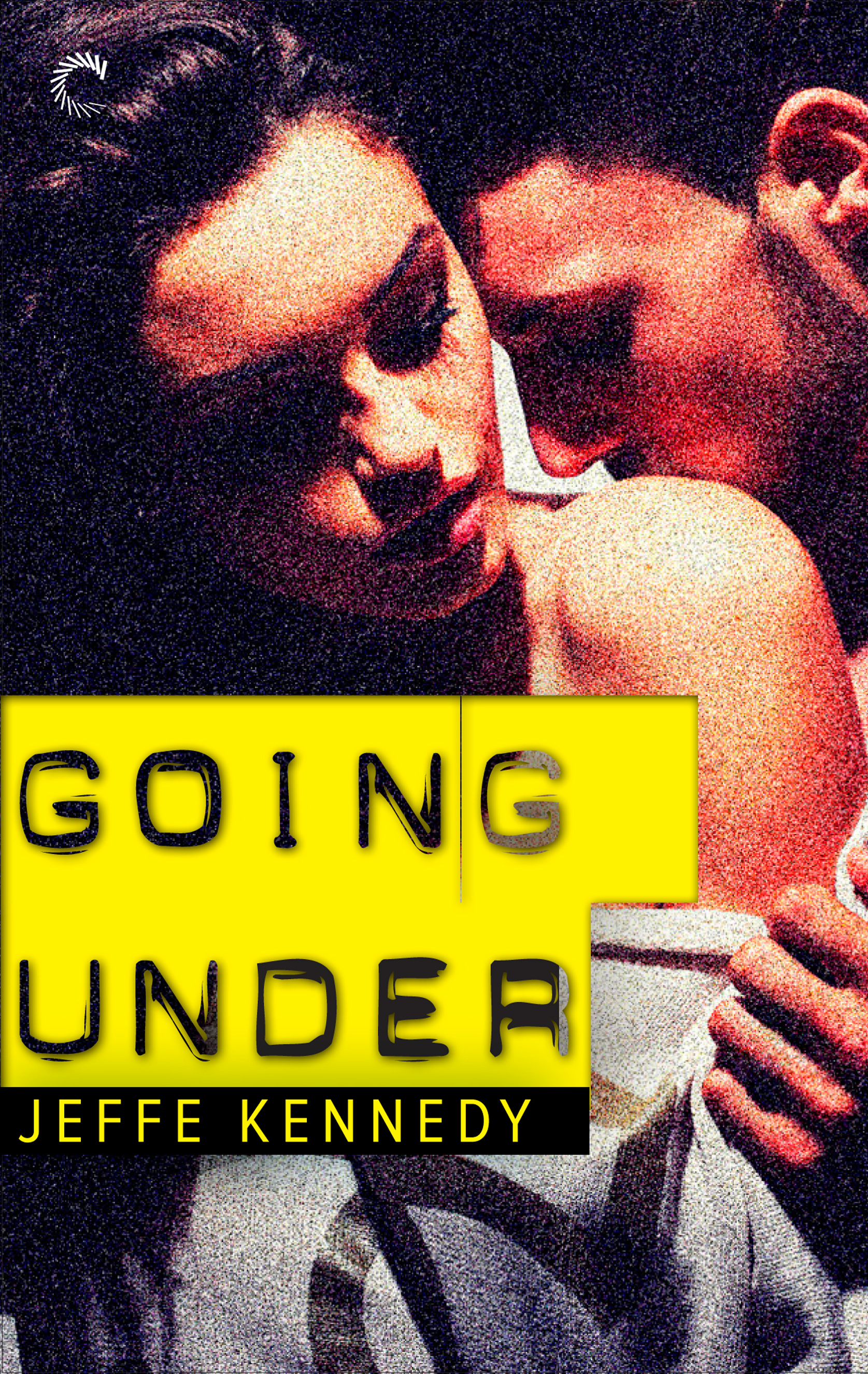
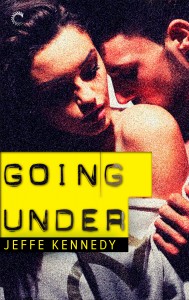 I’m over at the Contemporary Romance Cafe today, talking about how writing advice at the wrong time can give your stories Shaken Baby Syndrome.
I’m over at the Contemporary Romance Cafe today, talking about how writing advice at the wrong time can give your stories Shaken Baby Syndrome.

 For those who don’t know, that’s the Lyman Whitaker sculpture I bought with my first advance money last summer. Looks so awesome, particularly at sunrise.
For those who don’t know, that’s the Lyman Whitaker sculpture I bought with my first advance money last summer. Looks so awesome, particularly at sunrise.
And every time I see it, I feel a dual thrill of pleasure – in the beauty of the piece and in my own accomplishment.
At the time, I wrestled with whether to spend some of that money on a fun thing. Then, when I decided I should, it came down to one of these Wind Sculptures or a hot tub. I’m glad I chose the sculpture for this very reason, one that I didn’t consider. Seeing it every day reminds me of the work I put in to reach my goals and is a tangible, beautiful icon of that success.
So important, for all of us.
Because the publishing industry is a difficult one. There’s no doubt of this.
Yesterday I saw this article and tweeted a link to it, joking that the title should be “Authors Not Satisfied by Anything, Ever.” It’s one of those not-so-funny jokes, because the results show that, even after reaching some publishing goals, things aren’t all wine and roses for authors.
Lately I’ve been in the position of giving advice to aspiring authors. Just my karma? Perhaps. I participated in a panel (which I set up for my local chapter, but didn’t intend to be as advice-giving as it turned out), a couple of writers have emailed me for advice and I had dinner with a couple of my pre-pubbed local chapter gals.
One of the gals who emailed me asked about following up with an editor. She finished her email with: Gah! I hate waiting. Please tell me it gets easier?
I wish I could have. Of course, not to pull a Bill Clinton, it depends on what “it” refers to.
Does the waiting get easier? Yes, in many ways it does. Because, as I told this gal, experience helps your expectations align with reality. So when my New York editor says “I’ll send that next week,” I know full well it might not arrive for three weeks. That’s just par for the course. Also, I count on waiting times in ways I didn’t before, because I have so much more going on. For example, I sent book 2 of a trilogy to my New York editor by the 11/1 deadline and he recently confessed he hasn’t read it yet. Do I care?
Nooooooo……
Because I can’t possibly do developmental edits right now! In fact, I’m kind of banking on him not getting an edit letter back to me before mid-March. (Hear that, Peter? :D)
But, if I were, like the gal who emailed me, really waiting on those edits so I could get that going, I wouldn’t feel the same way. So, yes, Rhenna, in that way it does get easier.
Other things get easier, too. Once of the gals I had dinner with complained about how established and big ticket authors send in manuscripts that are riddled with errors (LKH – we’re looking at you), or that need extensive editing, while aspiring authors have to have every damn thing absolutely perfect, just to get in the door. She called it unfair.
I explained that it’s a test.
Is this a real phenomenon? Sure it is. But the reason is not to conspire against newbie authors. It’s because those established authors have a reputation and a loyal readership. The publisher knows what the author is capable of. Nobody asks me to do a revise and resubmit any more, because my editors have worked with me on several books and *know* how I’ll treat edits. They trust me. In fact, I can sell on ideas now, because they are familiar with my style and how I’ll go from idea to finished book.
Is this easier for me? Yes yes yes! It’s a great luxury for me and, believe me, I relish it. SO MUCH EASIER.
But it’s because I did the work to get there. With a brand new author, nobody knows how he or she will accept edits. Nobody knows if she can write that sequel by a deadline or if he can handle copy edits without pitching a creative tantrum. So, of course, they want it As Perfect As Possible. Just in case that’s as good as it gets.
That makes it much more difficult for aspiring authors, yes. The good news is, that’s part of doing the work. That’s learning important skills that will make it much easier down the road.
So, with a nod to Dan Savage and not to downplay the very important message of the It Gets Better campaign, yes.
It gets easier.